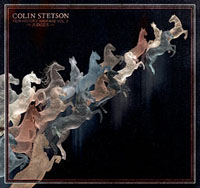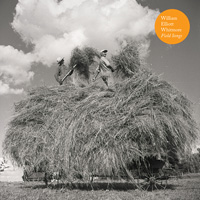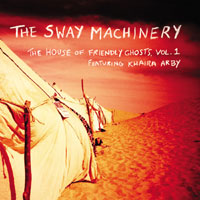 Colin Stetson: New History Warfare Vol. 2: Judges (Constellation, 2/22/11)
Colin Stetson: New History Warfare Vol. 2: Judges (Constellation, 2/22/11)
Colin Stetson: “Judges”
[audio:https://alarm-magazine.com/wp-content/uploads/2011/01/02-Judges.mp3|titles=Colin Stetson: “Judges”]
Powerful, otherworldly, and beautiful, wind player Colin Stetson‘s upcoming record, New History Warfare Vol. 2: Judges, commands attention from start to finish. Largely recorded live without overdubs, Stetson exploits techniques that yield dense layers of multiphonic sound that seem impossible to have come from a single instrument. Here sounding deep and sonorous as a foghorn, there alternating between percussive popping and plaintive moans, while elsewhere emitting swirling, cyclical lines that could nearly pass for strings, Stetson pushes his horns through every timbral possibility.
With such formidable instrumental prowess, one might expect a display of flashy improvisations, yet Stetson uses his command of his instruments in service of intricate compositions, rich in atmosphere and mood, and unmoored from any genre. Moreover, the pieces function together to create a coherent whole, emotionally resonant and deeply affecting. A record that will sound arresting and fresh to even the most adventurous listeners, New History Warfare Vol. 2 (out on Feb. 22) is an early bright light among this new year’s releases and likely to resurface on many year-end lists.
Adept at bass sax, clarinet, bass clarinet, french horn, and cornet, Stetson studied music at the University of Michigan. From there, stints on both coasts resulted in work with a wide range of music luminaries, including Tom Waits, Anthony Braxton, Fred Frith, and Antibalas Afrobeat Orchestra. More recently, Stetson has startled unsuspecting rock audiences as an opener for stadium indie acts such as Arcade Fire and The National. Here he explains how this integration of influences creates his own musical worlds.
When I’ve played your music for people, the unanimous reaction has been “that’s a sax?”, which is all the more impressive given that much of it was recorded without overdubbing. Can you explain how you’re able to create such a rich and diverse range of sounds, both in terms of technique and production?
Technically, regarding the instrument, I’m just employing a lot of extended techniques that improvisers have been using for decades. The basis for most of my pieces is in circular breathing; by breathing in through the nose and continuing to breath out of the mouth, you can create these longer, uninterrupted pieces of music. After that, it’s a lot of “voicing,” or using mouth and throat placement to form chords instead of single notes, specific arpeggiated lines to move those chords into individual and distinct melodies/harmonies, and also quite a bit of actual singing through the instrument.
Having been working this out for many years, when it came time to start recording this music, I knew that a straight-up stereo recording would only take a snapshot of what was happening, and would ultimately flatten the experience. There’s no way to capture the essence of live performance in this manner, not if the idea is to recreate the same image through recording. So what I try to do is to capture every distinct and separate element I can, individually with separate and different microphones, so that this information can then be reorganized in the mixing process, and, rather than an attempt at recreating the live experience, we create an alternate version of that experience, something that is specific to the process of recording. In simpler terms, I wanted to make a record like a Haruki Murakami novel or a Terrence Malick film.
 William Elliott Whitmore: Field Songs (Anti-, 7/12/11)
William Elliott Whitmore: Field Songs (Anti-, 7/12/11)













